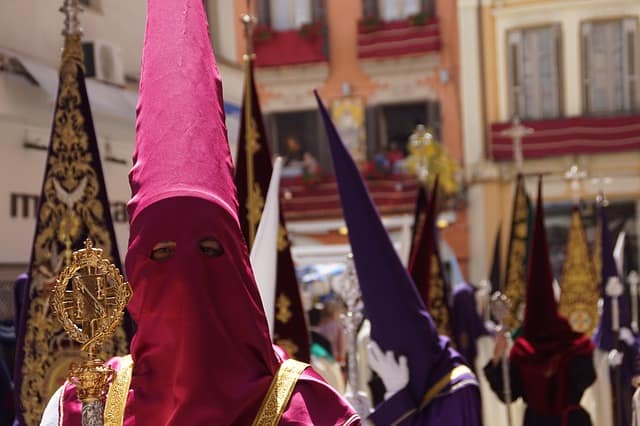Spanish people love their public holidays and festivities and these are great times of the year to visit Spain as a tourist. Spain has a wide variety of national and regional celebrations and we are going to take a look at the Public Holidays in Spain 2020.
12 public holidays
Spanish public holidays differ depending on each region and the number of permitted public holidays in Spain has varied through the years. The Spanish government granted 12 Public Holidays in Spain 2020. Eight of these are national public holidays selected by the national government and the other four are regional public holidays selected by local government.
Regional holidays
Regional public holidays tend to coincide with local festivals. For example, Las Fallas in Valencia (March), La Feria de Abril in Sevilla (April), La Fiesta de San Fermín in Pamplona (July), La Tomatina in Buñol (August) and Aste Nagusia in Bilbao (August).These are times of the year when those communities really let their hair down and put on a fantastic show for the tourists. The streets are packed and nobody wants to think about work, so a day or two of public holidays are vital.
Los Puentes
Spanish people love their public holidays even more when they can take a ‘Puente’. Puente literally means Bridge and is the name given to taking extra days holiday when a public holiday falls on a Thursday or a Tuesday (A bridge between the holiday and the weekend). It is agreed that there is no point going to work on a Friday when you are off on a Thursday and no point going to work on a Monday when you are off on a Tuesday. Previous Spanish President, Mariano Rajoy, tried and failed to eradicate Puentes by moving all public holidays to Mondays.

National holidays
The eight national Public Holidays in Spain 2020 that must be respected by all autonomous Spanish communities are as follows: El Día del Año Nuevo on Jan 1st (New Year’s Day), El Día de Reyes on Jan 6th (King’s Day/Epiphany), El Viernes Santo on April 10th (Good Friday), El Día del Trabajador on May 1st (Labour Day), La Asunción de la Virgen on Aug 15th (Assumption of Mary), La Fiesta Nacional de España on Oct 12th (National Day of Spain), El Día de la Inmaculada Concepción on Dec 8th (Day of the Immaculate Conception), El Día de Navidad on Dec 25th (Christmas Day).
You will recognise most of the national public holidays. Ones that you may be less familiar with are La Asunción de la Virgen which celebrates the Roman Catholic belief that after dying the body of the Virgin Mary was ‘assumed’ into heaven and reunited with her soul, La Fiesta Nacional de España (also known as Columbus Day or Hispanic Day) which celebrates the arrival of Christopher Columbus in the New World on October 12th 1492, and El Día de la Inmaculada Concepción which celebrates the Roman Catholic belief in the ‘immaculate conception’ of the Virgin Mary.





